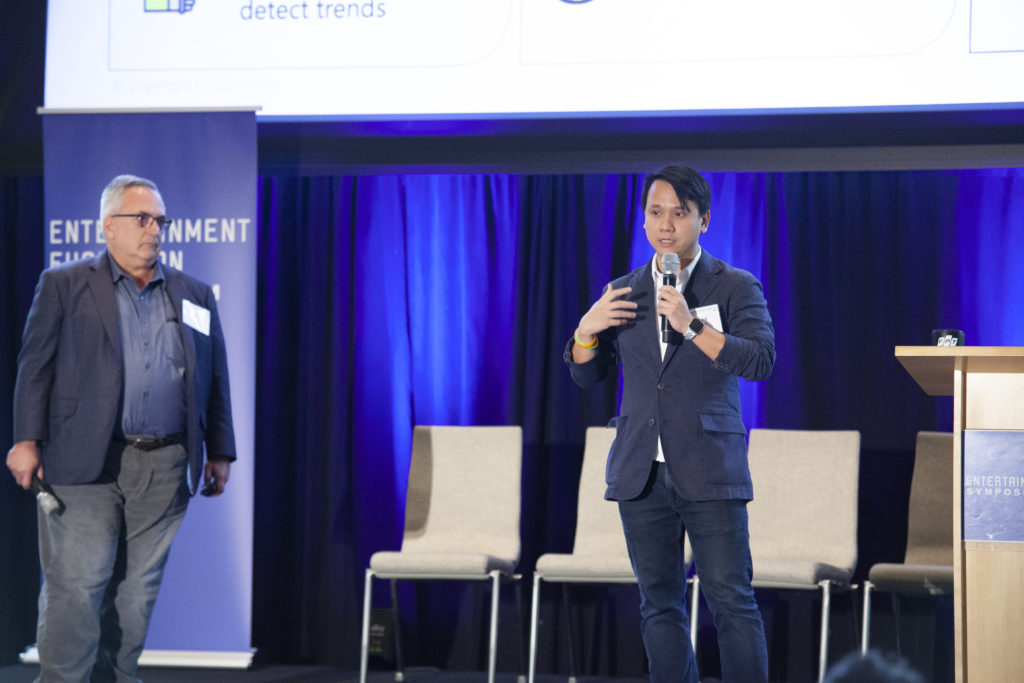
FPT at EES: How M&E Companies Can Use Data, AI and ML Ethically
Media and entertainment (M&E) companies are turning more and more to artificial intelligence (AI) and machine learning (ML) to help streamline operations, lower costs and enhance the richness of information that can be made available to consumers, according to FPT Software.
There are a very broad set of M&E use cases that can leverage AI and ML. However, with great power comes great responsibility. AI models can be trained in ways that expose bias, while ML applications may be leveraged to censor or politicize, the company pointed out Sept. 21 at the Entertainment Evolution Symposium (EES), during the Ethics, Financials & Syndication breakout session “The Ethical uses of Data, AI, and Machine Learning in Media & Entertainment.”
During the session, Ira Dworkin, managing director of communications, M&E at FPT Software, and Phong Nguyen, chief AI officer at the company, explored AI and ML uses for M&E, and how to identify and potentially avoid ethical misuse.
“FPT has a broad range of capabilities in AI, covering everything from object identification to pattern recognition, to natural language understanding and more,” Dworkin said, before introducing Nguyen, who talked about some of the uses for AI and machine learning in media and entertainment.
 “AI has been around and has been playing a very important part in our daily life every day,” according to Nguyen, who explained: “You talk to Siri, you have been interacting with a lot of applications on the internet powered by AI from the background. So AI has been everywhere. And specifically for media and entertainment, AI contribution can be grouped into three big contributions.”
“AI has been around and has been playing a very important part in our daily life every day,” according to Nguyen, who explained: “You talk to Siri, you have been interacting with a lot of applications on the internet powered by AI from the background. So AI has been everywhere. And specifically for media and entertainment, AI contribution can be grouped into three big contributions.”
The first is content generation, Nguyen said, noting AI “can help to automate that content generation,” creating “whole new drawings or whole new viideo from scratch.” A producer, meanwhile, can use some of the images generated by AI for their production, he added.
AI also can help with content personalization, he noted, explaining: “It understands your preference so that it can feed the right contents to you on YouTube” or on social media, and it can also help with “multilingual translations.” “So nowadays, from one language to another language, AI can help you to understand” what people are saying in a video and it can create subtitles, he said.
AI can also translate in real time and “demolish all the language barriers on earth,” he added.
Meanwhile, with the “power of analytics, AI can give you what is trending now, what is hot now, so the content producer can actually create videos and content that is similar to those trending so that they can get their contents more spread in those social platform,” he said.
AI can also be used for content management, he said, noting Amazon, Disney Plus and Netflix all rely on the technology for subscriber recommendations. The technology can also help with forecasting, he said.
He went on to get into some of the ethical considerations that need to be made with AI, pointing out, when used badly, it can lead to an “erosion of customers’ trust and brand damage due to AI failures.”
The Entertainment Evolution Symposium (EES) was presented by the Pepperdine Graziadio Business School Institute for Entertainment, Media and Sports (IEMS) and the Hollywood IT Society (HITS) and was sponsored by Iron Mountain, Signiant, Whip Media, Atos, Fortinet, FPT Software, invenioLSI, Perforce, Vision Media, and EIDR.
